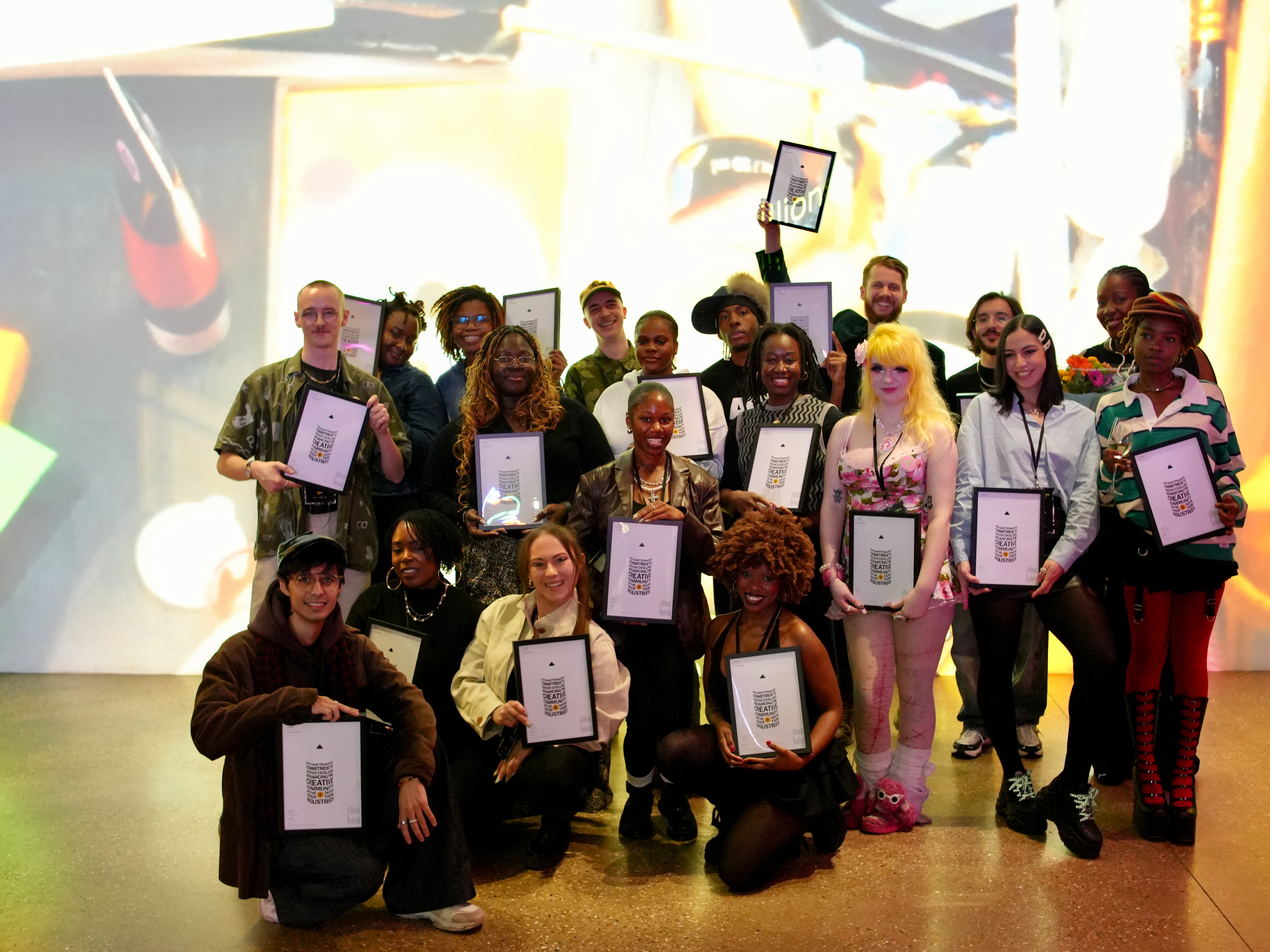The best pens for artists
Discover the best pens for artists, including the best drawing pens, as well as pens for writing, calligraphy and more.
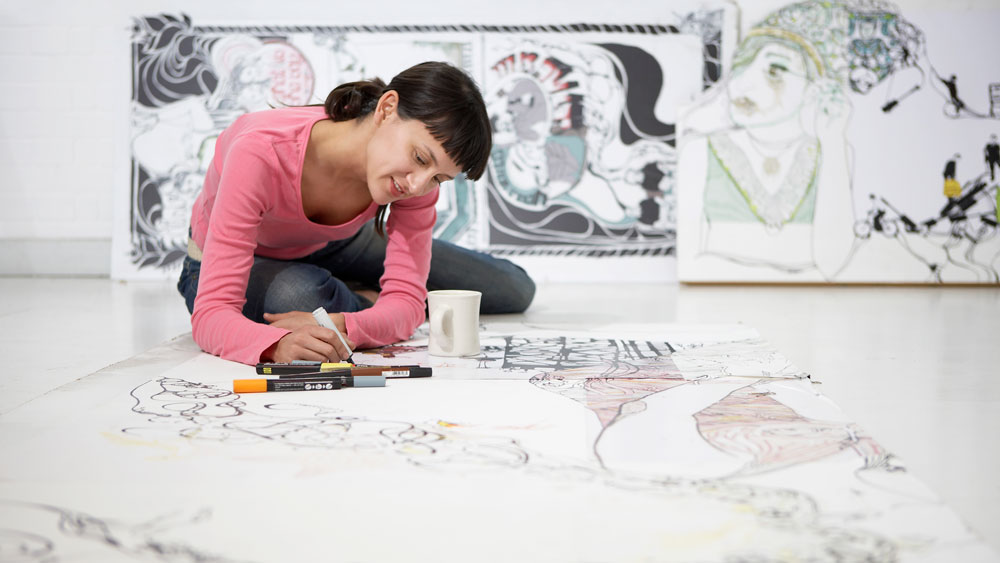
Daily design news, reviews, how-tos and more, as picked by the editors.
You are now subscribed
Your newsletter sign-up was successful
Want to add more newsletters?

Five times a week
CreativeBloq
Your daily dose of creative inspiration: unmissable art, design and tech news, reviews, expert commentary and buying advice.

Once a week
By Design
The design newsletter from Creative Bloq, bringing you the latest news and inspiration from the worlds of graphic design, branding, typography and more.

Once a week
State of the Art
Our digital art newsletter is your go-to source for the latest news, trends, and inspiration from the worlds of art, illustration, 3D modelling, game design, animation, and beyond.

Seasonal (around events)
Brand Impact Awards
Make an impression. Sign up to learn more about this prestigious award scheme, which celebrates the best of branding.
Picking one of the best pens could elevate your artwork, but there are so many available that making the choice isn't easy. All the models out there are best suited to different types of task so the one you choose will depend on what you're planning to use it for.
In this guide, you'll find the best drawing pens, the best pens for writing, the best pen for sketching, the very best calligraphy pens and more. In short, whatever you could imagine using a pen for (within reason), we'll have a standout pick for you here. To collate this list, we've spoken to artists across the globe to get their top recommendations.
Upgrading your whole pencil case? Head over to our guide to the best pencils, too, and check out our best markers post if you want a set of colourful pens. And once you're armed with the right equipment, don't miss our how to draw tutorials.
The best pens for artists right now
Why you can trust Creative Bloq
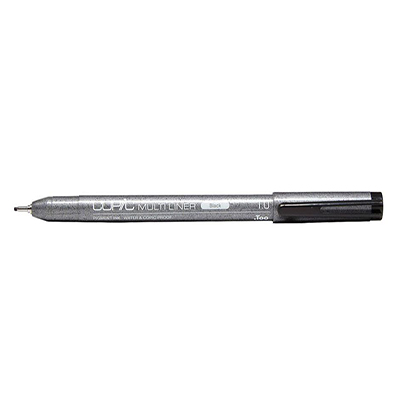
+ Sharp lines
+ Minimal bleed
- Smaller tips delicate
- Need storing securely
The Copic 1.0 mm Multiliner is a truly premium quality pen in all respects. The ink is densely pigmented, holds well on paper, and creates crisp, clean lines. Copic sells its Multiliners in a range of thicknesses, so you can pick the option that suits your artistic style best. Artists report they're comfortable to use, and not scratchy – even in the finer sizes. Finally, the range is good value for money, and refillable.
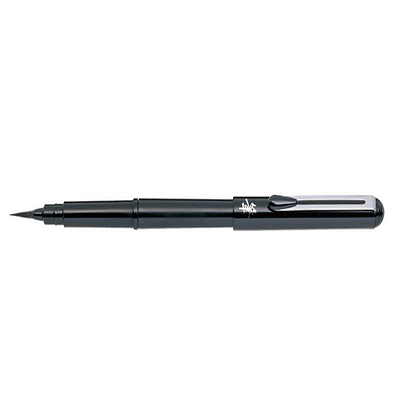
+ Precise tip
+ Great all-rounder
- Takes practice
- Ink can clump
With its hardwearing synthetic bristles, sturdy, precise tip and waterproof, fade-resistant ink, the Pentel Brush Pen runs a close second for our favourite all-round pen for drawing. These pens are great for creating a variety of different line types – although the delicate nib does take some getting used to. You'll need to be careful though – the ink can leak or clump if the lid isn't on tight.
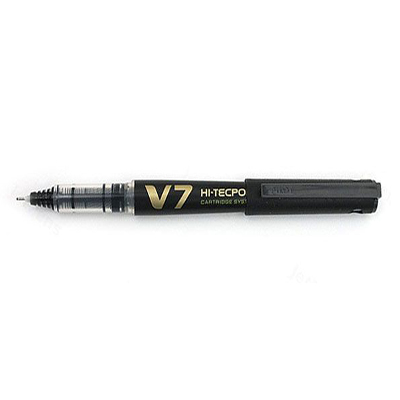
+ Nice feel
+ Thick line
- Not great for accurate drawing
The Pilot V7 Rollerball is essentially a hybrid between a fountain pen and a ballpoint, and our favourite pen for writing. Comfortable to hold, it produces a clean, consistent line with no smudging, and there’s a transparent ink reservoir window so you can be sure of getting hold of extra refills in time. It's probably not ideal for really accurate drawing, however, due to the flow being on the fast side.
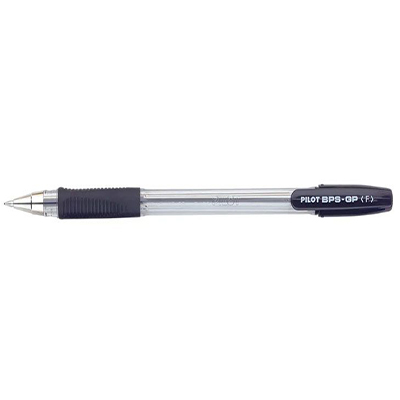
+ Good for details
+ Comfortable
+ Cheap
- Can smear
If you’re looking for the best ballpoint pen, we’d recommend the Pilot BPS GP Fine. This smooth, stick ballpoint with triangular rubber grip is comfortable to hold, cheap to buy, and beautifully functional in use. However, like most ballpoint pens, ink clots can form on the tip, which will smear if they end up on your paper. This ballpoint pen includes 0.7mm, 1.0mm, 1.2mm and 1.6mm options.
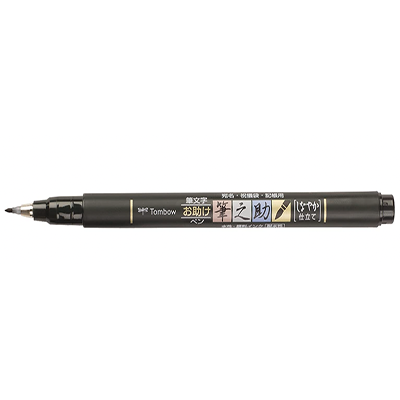
+ Flexible tip
+ Affordable price
- Learning curve
If calligraphy is your thing, the best pen for you is the Tombow Fudenosuke brush pen. This pen is made in Japan and delivers excellent results, yet is surprisingly affordable. Coming as a set, with one soft type and one hard type, these light pens are easy to use, with a flexible nib that’s perfect for the nuanced lines and curves needed for beautiful Japanese script.
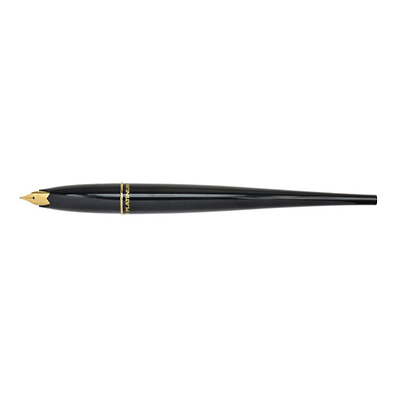
+ Waterproof ink
+ Thin and thick lines
- Not for rough paper
- Nib a bit scratchy
The Platinum carbon fountain pen, with its ultra-fine nib, is great for sketching. Unlike most fountain pens, the nib isn't rounded off, so you can use it to create thick or thin lines. Your expressive linework won't run with water either, thanks to the carbon ink. It's also great value for money. Like some other pens on this list, there's a learning curve on this one, as it can feel scratchy to start with.
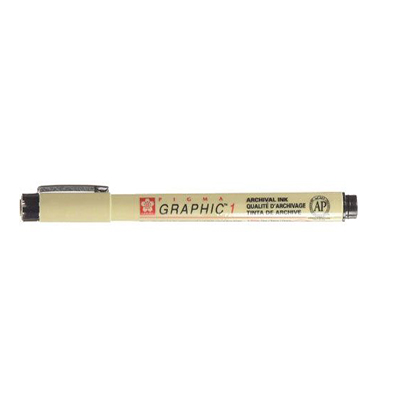
+ Consistent ink flow
+ Bold line
- Not refillable
- One colour only
This pen from Sakura, which combines water-based and pigment-based inks, is a seriously fine model, delivering a bold, consistent line and superb colour transferal. It's great for sketching and makes a bold line, allowing for expressive lines. It only comes in one colour, though.
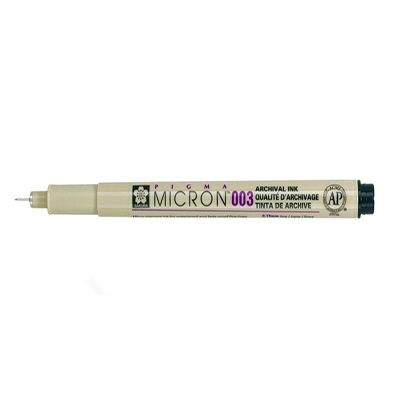
+ Less messy than a dip pen
+ Good line variation
- Nib can spit
- Lines crack on some paper
The Sakura Pigma Micron is the best pen for lettering and line art. It creates a pleasingly dark line that bleeds very little and won't smudge when washed or erased over. The tips are fine but not too delicate, and they're also odour-free. With a little practice, you can also use them to create a variety of line types.
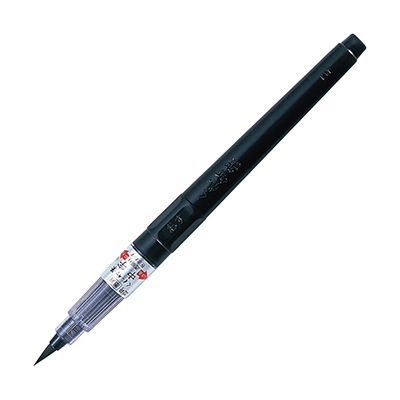
+ Organic feel
+ Varied line thickness
- Not ideal for still-life
- Not ideal for quick studies
Looking to draw living things? Check out the Kuretake Sumi brush pen. It offers a wide variation in line width to give your sketches an organic, dynamic feel that's well suited to portraits, animals and plants. It's also refillable, though isn't ideal for still lives or quick studies.
Which pen is best for writing?
The Pilot V7 Rollerball is a cross between a fountain pen and a ballpoint pen and is our favourite for writing. Lines are clean and clear and it's comfortable to hold.
For calligraphy, we like the Tombow Fudenosuke Brush Pen, which is made in Japan and ideal for creating gorgeous script.
Which pen brand is best?
The pen brand you'll prefer largely depends on what you want to use it for. If it's writing, then Pilot do a good range of pens, and if you want to draw then Copic has some great options. For brush pens, we like Sakura's range. Pentel are also good for drawing.
Daily design news, reviews, how-tos and more, as picked by the editors.

Tom May is an award-winning journalist specialising in art, design, photography and technology. His latest book, The 50 Greatest Designers (Arcturus Publishing), was published this June. He's also author of Great TED Talks: Creativity (Pavilion Books). Tom was previously editor of Professional Photography magazine, associate editor at Creative Bloq, and deputy editor at net magazine.
- Rosie HilderDeputy editor
